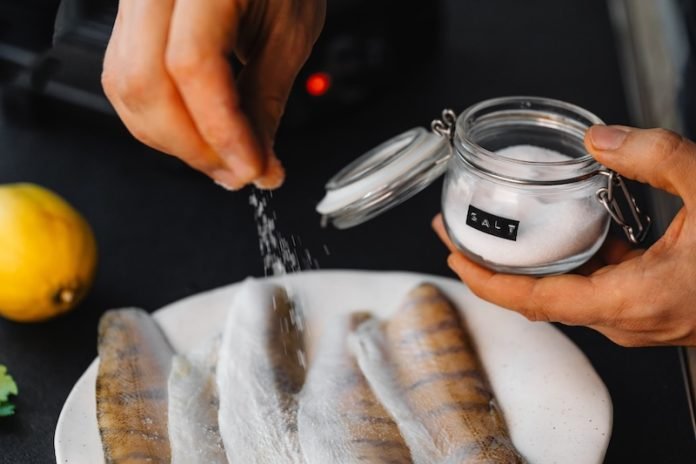
A recent study from Vanderbilt University Medical Center and elsewhere provides encouraging news for individuals seeking to manage their blood pressure.
Published in the Journal of the American Medical Association, the study highlights the significant impact of reducing sodium intake on blood pressure levels.
Led by Deepak Gupta, M.D., MSCI, associate professor of Medicine at VUMC, the study involved middle-aged to elderly participants in their 50s to 70s.
These participants, from Birmingham, Alabama, and Chicago, were part of one of the largest studies to explore the effects of sodium reduction in the diet, including those with hypertension and already on medications.
Participants were randomized into two dietary groups: a high-sodium diet (2,200 mg per day added to their usual diet) and a low-sodium diet (500 mg total per day).
Each group followed their assigned diet for one week and then switched to the other for another week. Throughout the study, participants wore blood pressure monitors and collected 24-hour urine samples.
The findings were significant. Participants on the low-sodium diet showed a remarkable decrease in systolic blood pressure – about 7 to 8 mm Hg lower than when on the high-sodium diet and 6 mm Hg lower than their usual diet.
Notably, 72% of participants experienced a reduction in systolic blood pressure on the low-sodium diet compared to their normal diet.
Gupta and Allen found that the positive effects of sodium reduction on blood pressure were consistent across nearly all individuals, regardless of their initial blood pressure status.
This consistency underscores the universal benefit of dietary sodium reduction in managing blood pressure.
The study revealed that even a modest decrease in sodium intake could lead to significant improvements in blood pressure, comparable to the effects of first-line medications for high blood pressure. Moreover, the results were achieved rapidly and safely within just one week.
Highlighting the global relevance of this finding, Cora Lewis, MD, MSPH, from the University of Alabama at Birmingham, emphasized the potential public health impact, given that high blood pressure is a leading cause of health issues worldwide.
The practical nature of the low-sodium diet, using generally available food products, makes this an accessible and effective strategy for individuals aiming to improve their health through dietary changes.
In summary, this study reinforces the importance of sodium reduction in diets, not only as a means to manage blood pressure but also as a preventative measure against hypertension-related health problems, even for individuals already on blood pressure medications.
If you care about high blood pressure, please read studies about unhealthy habits that may increase high blood pressure risk, and drinking green tea could help lower blood pressure.
For more information about high blood pressure, please see recent studies about what to eat or to avoid for high blood pressure, and 12 foods that lower blood pressure.
The research findings can be found in JAMA.
Copyright © 2023 Knowridge Science Report. All rights reserved.



